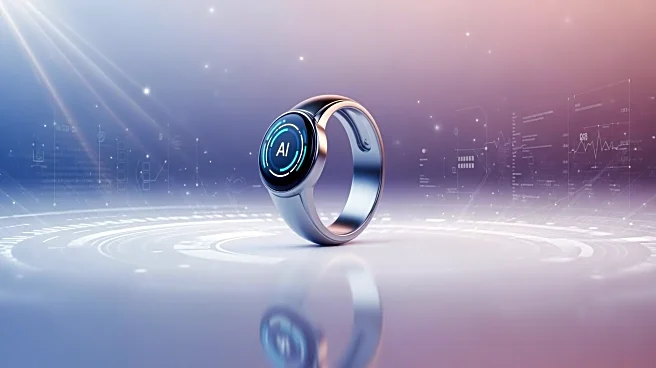What's Happening?
The Luna 2.0 Smart Ring, known for its advanced health tracking capabilities, is available at a 20% discount as part of an early Black Friday promotion. The offer, valid until November 28, 2025, reduces the price from $329 to $263.20 when using the code
BFS20 at checkout. The Luna 2.0 Smart Ring, paired with the Surge Charger, provides a comprehensive package that combines cutting-edge health technology with sleek design and long-lasting battery life. The ring features AI-driven analytics, a 21-day battery life, and a new LifeOS intelligence layer, making it one of the most affordable and advanced wellness wearables on the market.
Why It's Important?
The Luna 2.0 Smart Ring represents a significant advancement in wearable health technology, offering users personalized insights into their health and wellness. With AI-powered analytics, the ring provides real-time recommendations for sleep, recovery, and stress management, which can be crucial for individuals looking to optimize their daily routines and overall health. The discount makes this technology more accessible to a broader audience, potentially increasing the adoption of AI-driven health tracking devices. This could lead to improved health outcomes for users by enabling them to make informed decisions based on their physiological data.
What's Next?
As the Black Friday promotion continues, Luna may see increased sales and interest in its smart ring technology. The company could leverage this momentum to expand its market presence and introduce new features or integrations to the LifeOS platform. Users might anticipate further enhancements in AI-driven health tracking, potentially including more personalized health insights and expanded compatibility with other health and fitness applications. The success of this promotion could also encourage other wearable technology companies to offer similar discounts and innovations.
Beyond the Headlines
The Luna 2.0 Smart Ring's integration of AI and health tracking raises important questions about data privacy and the ethical use of personal health information. As wearables become more sophisticated, companies must ensure that user data is protected and used responsibly. Additionally, the widespread adoption of such technology could influence cultural attitudes towards health monitoring, encouraging proactive health management and potentially reducing healthcare costs through early detection and prevention.















